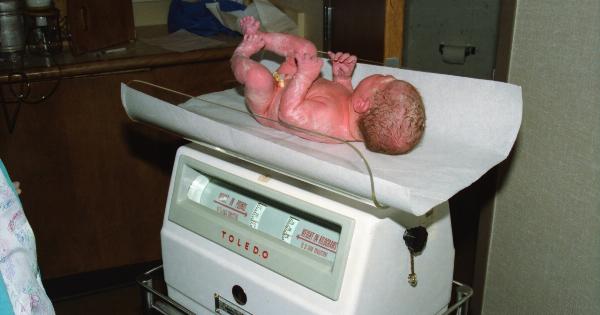Week 25 marks a critical time for both the baby and the mother during pregnancy.
This period is characterized by significant developments in the baby’s growth and maturation, as well as various physical and emotional changes experienced by the mother. Understanding the key aspects of this stage can help expectant parents better navigate this important period in their pregnancy journey.
Significant Baby Development
By week 25, the baby has reached a remarkable stage of growth. Here are some of the most notable developments:.
1. Rapid Brain Development
The baby’s brain continues to rapidly develop, forming intricate networks of neurons that will enable various functions in the future. Neural connections multiply, enhancing the baby’s sensory abilities and cognitive processes.
2. Lung Development
The lungs are one of the vital organs that mature during this period.
Although not fully developed yet, the baby’s lungs start producing a substance known as surfactant, which helps to expand the air sacs and promotes better breathing capabilities in preparation for life outside the womb.
3. Sensory Advancements
The baby’s senses continue to sharpen during week 25. Their auditory system becomes more sophisticated, allowing them to recognize familiar voices and sounds. At this stage, the baby can respond to external stimuli like light, touch, and noise.
4. Increased Fetal Movement
As the baby grows stronger, their movements become more pronounced. Expectant mothers can feel regular kicks, punches, and other movements, which strengthen the bond between the mother and the baby.
Physical and Emotional Changes in the Mother
Week 25 brings about several changes in the mother’s body and emotional well-being. It is essential for expectant mothers to prioritize self-care and pay attention to these changes:.
1. Growing Belly and Weight Gain
At this stage, the mother’s belly becomes more prominent as the baby grows. Weight gain is expected as the body prepares to nourish the baby in the coming weeks.
It’s crucial for mothers to adopt healthy eating habits and engage in safe exercises as recommended by healthcare providers.
2. Backaches and Pelvic Pain
The additional weight carried by the mother can lead to increased strain on the back and pelvis, resulting in discomfort and pain.
Proper posture, gentle stretching exercises, and using supportive pillows while resting can help alleviate these symptoms.
3. Hormonal Changes
Hormonal fluctuations during week 25 can contribute to mood swings, irritability, and heightened emotions. It is important for mothers to communicate their feelings and seek support from their loved ones to manage these emotional changes effectively.
4. Braxton Hicks Contractions
During week 25, mothers may start experiencing Braxton Hicks contractions, which are irregular practice contractions that help the uterus prepare for labor.
These contractions are usually painless and sporadic, but it’s advisable to consult a healthcare provider if they become frequent or intense.
Preparing for the Arrival of the Baby
As week 25 signals the approach of the third trimester, expectant parents should begin preparing for the arrival of their baby. Here are some essential steps to consider:.
1. Designing the Nursery
Creating a comfortable and safe nursery environment is important.
It involves choosing appropriate furniture, organizing essentials such as a crib, changing table, and baby clothes, and ensuring everything is within easy reach for the convenience of both the baby and the parents.
2. Attending Prenatal Classes
Prenatal education classes offer valuable insights into childbirth, breastfeeding, newborn care, and parenting techniques.
These classes provide expectant parents with the necessary knowledge and confidence to navigate the early stages of their baby’s life.
3. Developing a Birth Plan
A birth plan outlines the mother’s preferences for labor and delivery.
Collaborating with healthcare providers to create this plan allows expectant parents to communicate their desires regarding pain management, delivery interventions, and any specific cultural or personal traditions they wish to incorporate during the birthing process.
4. Establishing a Support System
Building a solid support system is crucial during this critical time. Engage with family, friends, and other expectant parents who can provide guidance, share experiences, and offer emotional support throughout the pregnancy journey and beyond.
Conclusion
Week 25 marks a critical juncture in the development of both the baby and the mother.
Understanding the significant changes occurring in the baby’s growth and the physical and emotional transitions experienced by the mother helps expectant parents to navigate this period more confidently. By embracing self-care, seeking support, and preparing for the baby’s arrival, parents can embark on the final trimester with a sense of readiness and excitement.




























